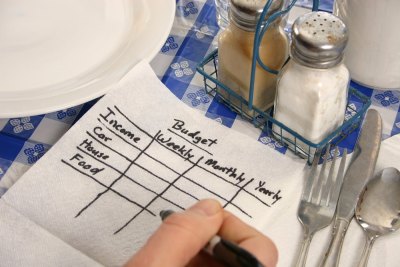Millions of South Africans are now struggling more than ever before to feed their families. Here are some tips for healthy eating on a rock-bottom budget:
Make starchy foods the basis of most meals
Many people regard starches (grains, cereals, bread, porridge) as "The Enemy" because they believe that carbohydrates are fattening. This is not true. Carbohydrates contribute only 16kJ per gram (compared to 37kJ per gram provided by fat).
Unprocessed, unmilled or wholegrain carbohydrates such as unsifted maize meal, sorghum, millet, brown rice, samp, crushed wheat, brown and wholewheat bread, are the best readily available fuel for the human body to support physical activity.

In addition, these unprocessed carbohydrates contain dietary fibre, which keeps you satisfied for longer and promotes normal bowel functions, and a variety of important B vitamins and minerals that protect the body against certain diseases. As an added bonus, maize meal and wheat bread sold in South Africa has to be fortified by Government regulation with vitamin A, thiamine (vit B1), riboflavin (vit B2), niacin, folic acid, and pyridoxine, and the minerals zinc and iron.
If you use unprocessed starchy foods as the basis of your meals, you will ensure that you and your family obtain a reliable source of energy, B vitamins and dietary fibre.
South Africa is a major producer of maize - for those of us who have stopped eating our staple food, now is the time to revert back to your roots.
Serve maize meal whenever possible and if you live in the city and think you don’t have time for the slow cooking process, buy or build a slow cooker or a "hay box", in which you can place your pot of maize meal to cook slowly all day long while saving a lot of electricity.
Eat plenty of vegetables and fruits every day
This guideline is vital for good health because vegetables and fruit are rich in protective nutrients such as vitamins, minerals and phytonutrients.
If you find it expensive to buy fruit and vegetables, hunt around in your area to find the best value for money. In some cases, it's better to buy vegetables and fruit in bulk and share the cost with friends, family and neighbours.
You can also use parts of vegetables such as the stalks of spinach and beetroot, or pumpkin leaves and pips, which you may have discarded in the past.
The African tradition of cooking greens gathered in the veld is an excellent practice. Starting your own vegetable garden is another.
Eat dry beans, peas, lentils and soya regularly
Legumes (the collective name for the above-mentioned plant foods) have been used as a staple food and a source of protein in Asia since the dawn of time. Legumes are rich in plant protein, dietary fibre, vitamins and minerals and they contain no cholesterol.
By adding a portion of cooked legumes to three portions of starchy food, one can create a practically ideal meal to provide in all your energy and nutrient needs. Research conducted in Uganda many years ago already indicated that adding one cup of cooked beans to three cups of cooked maize meal produced a highly nutritious diet for malnourished populations.
Provide variety by using different legumes in different ways and by using different spices and herbs.
Legumes also take longer to cook, so get that slow cooker or "hay box".
Basic low-cost diet
Your most basic low-cost diet could therefore consist of:
- Fortified maize meal or fortified wholewheat bread
- Cooked legumes (stew, soya mince, nourishing soups)
- Vegetables and fruit
- A small amount of oil for cooking or margarine for spreading on bread
- A small amount of sugar or jam to make the staple foods palatable
- 1-2 cups of reconstituted powdered milk or maas (especially important for growing children and pregnant and breastfeeding mothers)
- One portion of protein food when affordable (meat, fish, eggs, chicken), but not every day
Foods to avoid
If you're on a tight budget, don't spend your scarce money on:
- Alcohol
- Cold drinks
- Fast-food and snack food
- Sweets, chocolate, cakes, pies etc
- Bottled water (if the water in your area isn't safe - and most of South Africa's municipal water is safe to drink - boil tap water)
We're facing tough times and things may get much worse before there's an upswing in the economy. But by careful planning and buying, you can feed your family with nutritious food to ensure that they stay healthy.
Any questions? Ask DietDoc
Read more:
Nutrition basics in a nutshell
40 tips for cheap and healthy eating
Naked Chef tackles healthy eating
Image: Food budget scribbled on napkin from Shutterstock




 Publications
Publications
 Partners
Partners














